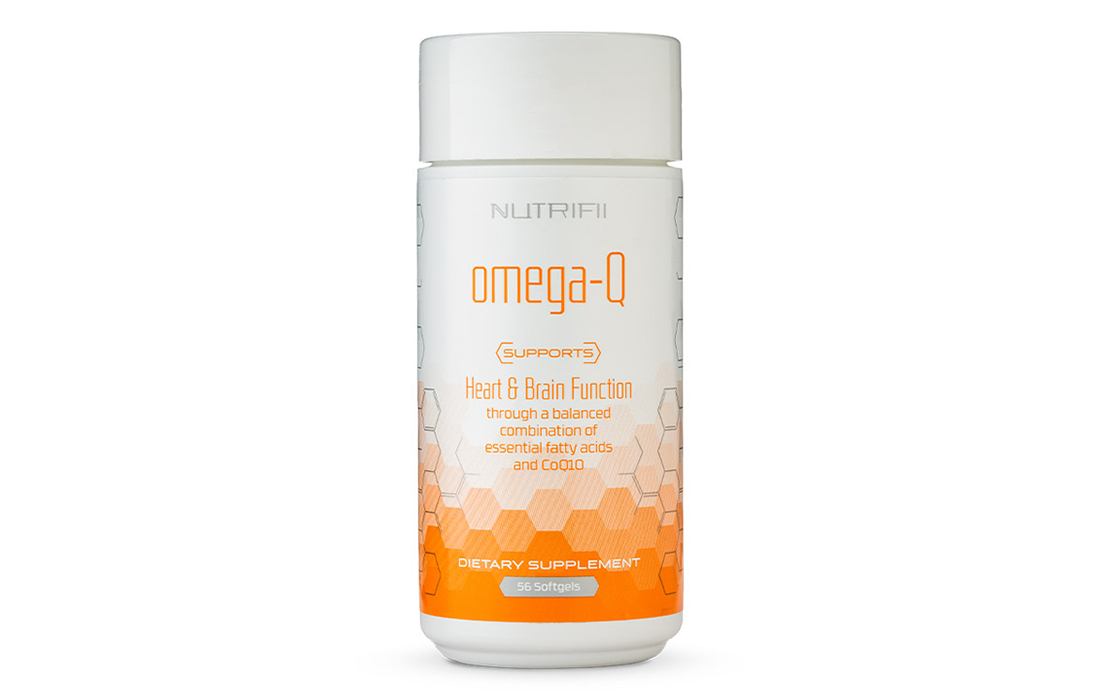Nutrition and Supplements
What are the Health Benefits of Taking Omega and Coenzyme Q10?
What is Omega?
Omega-3s (short for omega-3 fatty acids) are a kind of fat found in foods present in plants and marine life, and in the human body. They are also sold as dietary supplements.
Fish oils come from fatty or oily fish, such as trout, mackerel, tuna, herring, sardines, and salmon. They contain omega-3 fatty acids, and many contain vitamins A and D.
Two types are plentiful in oily fish: eicosapentaenoic acid (EPA) and docosahexaenoic acid (DHA). Alpha-linoleic acid (ALA), meanwhile, mainly occurs in plant-based foods, such as flaxseed.
Omega-3 is present throughout the body, especially in the brain, retina, and sperm cells. The body cannot produce omega-3 on its own, however, so people need to obtain it from dietary sources.
What are the Best Sources of Omega-3?
The following types of fish are some of the best sources of these fatty acids. For each fish below, the serving size is 3 ounces (oz):
- Mackerel.
- Salmon.
- Seabass.
- Oysters.
- Sardines.
- Shrimp
- Seaweed and algae.
- Chia seeds.
- Hemp seeds.
What are Some Known Health Benefits of Omega-3?
Life Span
A study from The American Journal of Clinical Nutrition has explored whether or not there is any connection between omega-3 and human life expectancy. The researchers found that having higher levels of omega-3 in the blood could predict a lower mortality rate in people over the age of 65 years.
Heart and cardiovascular benefits
Omega-3 fatty acids in fish oils may help prevent heart disease and stroke, according to the American Heart Association. It may also help manage:
- Triglyceride levels.
- Cholesterol.
- High blood pressure.
A 2013 study found that people who took fish oil supplements for longer than 1 month had better cardiovascular function during mentally stressful tests.
In 2012, researchers noted that fish oil, due to its anti-inflammatory properties, appeared to help stabilize atherosclerotic lesions.
The AHA recommends eating fish, and especially oily fish, at least twice per week. They say that this may reduce the risk of cardiovascular disease.
Postpartum depression
People with low levels of omega-3 during pregnancy and while breastfeeding may be more susceptible to postpartum depression.
The authors of a 2018 review concluded that taking fish oil supplements around this time may help reduce the risk of depression.
However, people should avoid eating fish that may be high in mercury, such as shark and king mackerel, during pregnancy. Some good alternative choices include canned light tuna, salmon, pollock, and catfish.
Vision Loss and Eye Health
Some evidence suggests that getting an adequate intake of omega-3 may help protect eye health.
In a 2012 study, mice that received omega-3 supplements for 6 months appeared to have better retinal function and a lower risk of age-related vision loss than mice that did not receive the supplements.
In 2019, for example, scientists who looked at the data of 4,202 people in Holland found that those who consumed fresh fruits and vegetables and 2 weekly servings of fish were less likely to develop age-related macular degeneration compared with those who did not.
What is Coenzyme Q10?
CoQ10 is an antioxidant that the body produces naturally and stores in components of the cell called mitochondria. It has associations with energy, protecting cells, and providing heart benefits. CoQ10 plays a few critical roles in the body. For example, the body’s cells need this compound to produce the energy that allows them to function.
As an antioxidant, CoQ10 also protects the cells in the body by neutralizing free radicals, which reduces oxidative stress in the body. Oxidative stress can cause tissue damage, inflammation, and cellular apoptosis, or cell death. There are links between oxidative stress and a range of disorders, including Alzheimer’s disease and Parkinson’s disease.
What are the Best Sources of CoQ10?
People can obtain CoQ10 by eating certain meats and grain proteins, but the quantity present in these foods is too small to increase CoQ10 levels in the body significantly.
Foods that contain CoQ10 include:
- Organ meats, such as kidney and liver.
- Chicken and beef.
- Pork
- Fatty fish, such as sardine and trout.
- Spinach and broccoli.
- Soybeans and whole grains.
What are Some Known Health Benefits of CoQ10?
Heart Health
CoQ10 might help treat specific heart conditions, such as congestive heart failure and high blood pressure, particularly among older individuals.
Research on the effectiveness of CoQ10 for heart problems has provided mixed results. However, one study reported that CoQ10 was an important factor in the survival of older adults with chronic heart failure.
Reducing migraines
According to both the American Academy of Neurology and the American Headache Society, CoQ10 may be effective in preventing migraines, although the research to support this is still limited. It is possible that CoQ10 has this effect because it keeps the mitochondria in the cells healthy.
Ask one of our staff members at Zignagenix for the supplement Nutrifii Omega-Q, a unique blend of essential omega fatty acids and coenzyme Q10, two of the most powerful ingredients for initiating and sustaining overall health, starting at the cellular level.
Get yours know today: https://shop.drramon.com/product/nutrifii-omega-q/
Sources:
Araya-Quintanilla F, et al. Effectiveness of omega-3 fatty acid supplementation in patients with Alzheimer disease: A systematic review and meta-analysis. Neurologia (Engl Ed). 2020 Mar;35(2):105-114. English, Spanish. doi: 10.1016/j.nrl.2017.07.009. Epub 2017 Oct 4. PMID: 28986068.
Yvette Brazier. (2021, Jan 5). Can fish oils and omega-3 oils benefit our health? Medical News Today. Retrieved from:
https://www.medicalnewstoday.com/articles/40253#omega-3-fatty-acids
https://www.nccih.nih.gov/health/omega3-supplements-in-depth
Kat Gal. (2020, Jan 20). What are the best sources of omega-3 .Medical News Today. Retrieved from:
https://www.medicalnewstoday.com/articles/323144#omega-3-supplements
Erika Watts. (2021, Jul 27). Omega-3 levels in the blood may boost life span. Medical News Today. Retrieved from:
https://www.medicalnewstoday.com/articles/omega-3-levels-in-the-blood-may-boost-lifespan
Jamie Eske. (2019, Jan 8). What are the benefits of CoQ10? Medical News Today. Retrieved from:
https://www.medicalnewstoday.com/articles/324113#what-to-know-about-coq10

